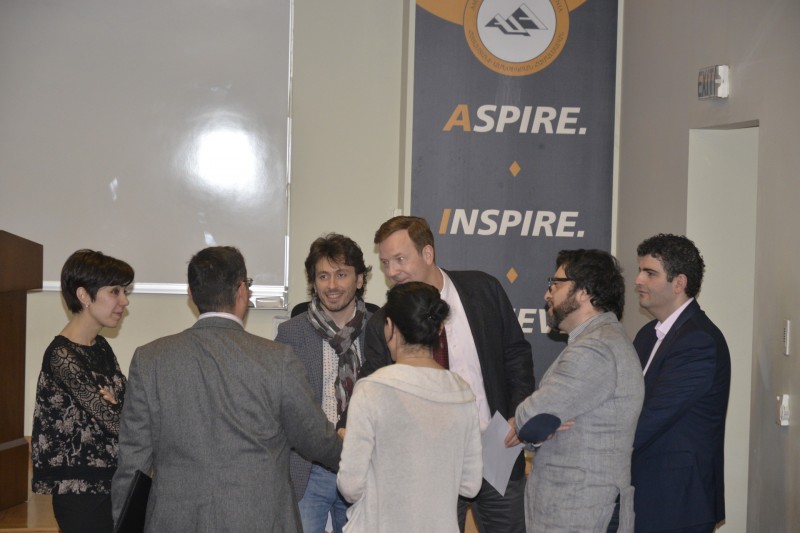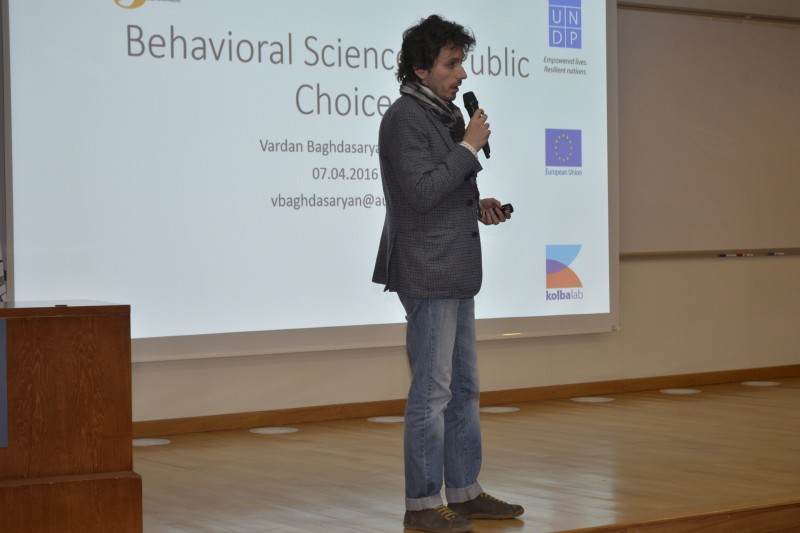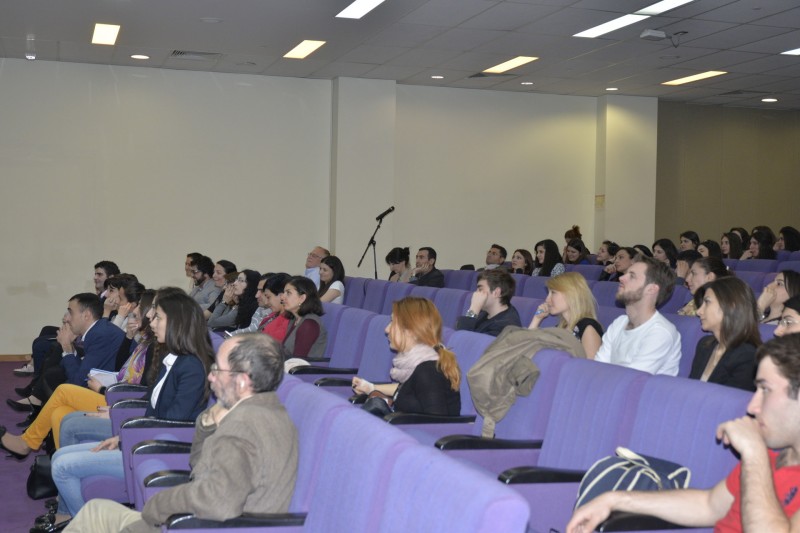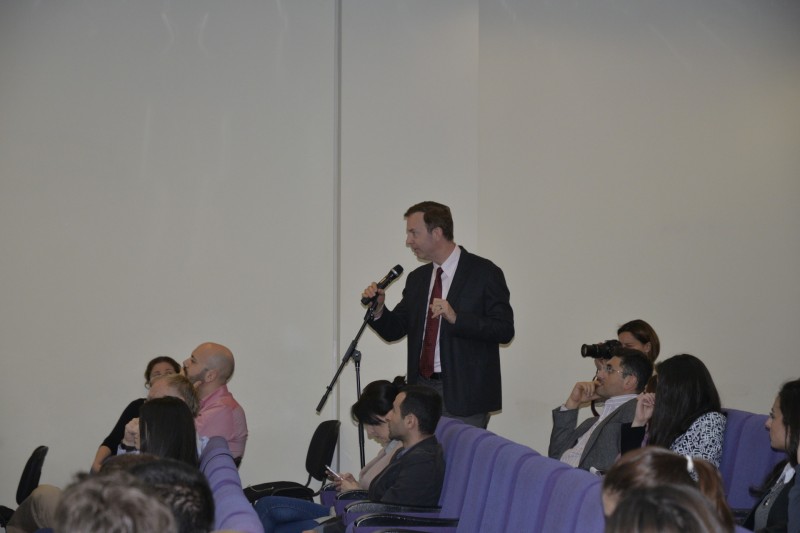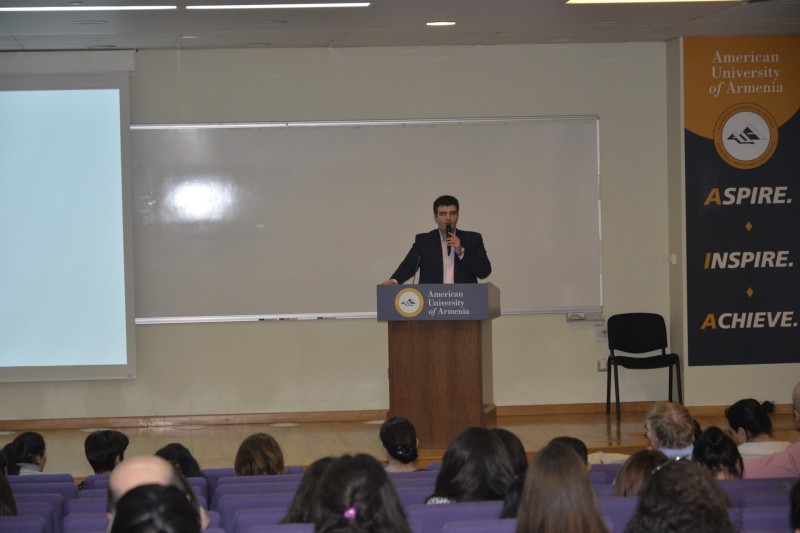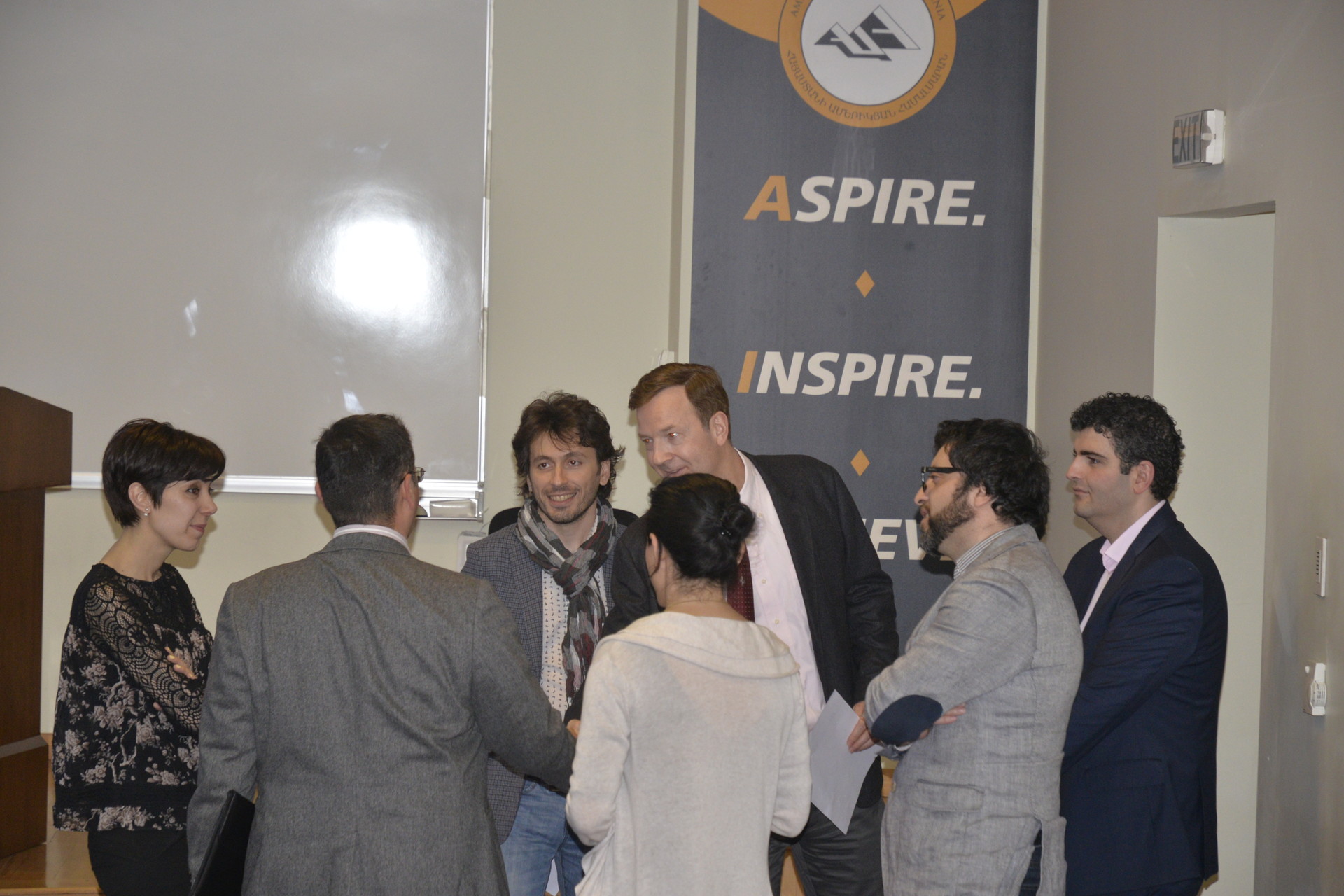
Behavioral Science in Development
< 1 min readYEREVAN, Armenia – On April 7th, The American University of Armenia (AUA) College of Business & Economics (CBE) and the Center for Business and Research Development (CBDR) hosted a public talk on behavioral sciences in development, led by AUA Adjunct Lecturer Armenak Antinyan, and Assistant Professor Vardan Baghdasaryan. The event provided an introduction on how behavioral sciences can be used for policy-making in the fields of taxation, health, and the environment. Results of a laboratory experiment conducted in Italy on how voters responded to electoral fraud with varying their participation rates was also presented.
Recent developments vividly illustrate the power of behavioral sciences to promote development and combat poverty, by explaining the decisions of individuals in such aspects as savings, investment, tax compliance, energy consumption, health and child rearing (World Development Report, 2015). In this respect, Behavioral Insights (BIs) have progressively been recognized as a valuable input to policy-making by major international organizations such as the European Commission (EC), the Organisation for Economic Co-operation and Development, (OECD) and the World Bank (European Insights to Applied Policy, 2016). A few national governments either have established specialized teams to inform policy-making by BIs, or have called for national agencies or policy departments to use BIs.
Founded in 1991, the American University of Armenia (AUA) is a private, independent university located in Yerevan, Armenia and affiliated with the University of California. AUA provides a global education in Armenia and the region, offering high-quality, graduate and undergraduate studies, encouraging civic engagement, and promoting public service and democratic values.

